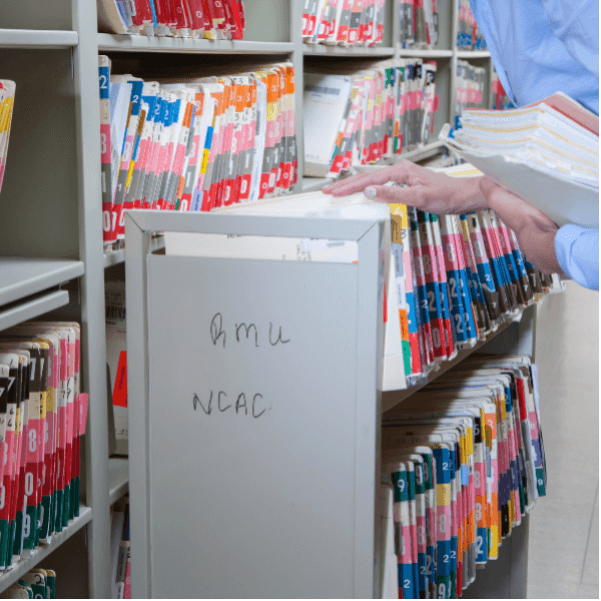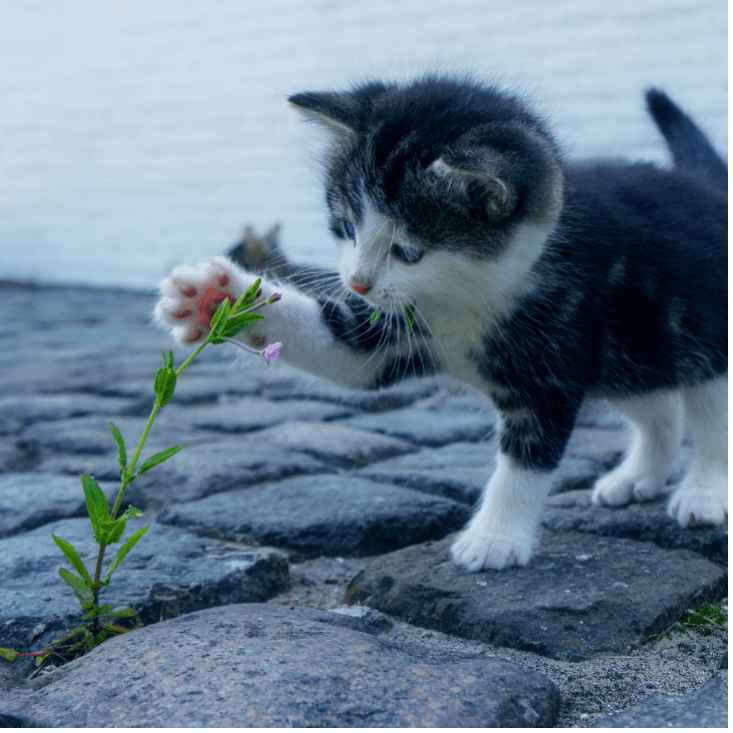When more than four centuries of people grow up hearing the saying ‘curiosity killed the cat’ you can understand why so many people pull back from the unfamiliar.
Sticking to the familiar might feel safe, but it can lead to stagnation. How long that takes, probably depends on how much you desire challenging work.
For me, it took one day.
I still have vivid memories of the day I was sent as a young Clerk to relieve in Medical Records. Those were the days of paper records. My day was spent matching names on pathology result slips with manilla folders. The most exciting part was unclipping and re-attaching the plastic tube and prong that held the folder together. Over and over, and over again.

No music, no conversation, just me and my thoughts with no external stimulation. It felt like torture.
Some people might have found it peaceful but as a chronic over thinker I felt like I would end up sticking a pen in my eye if I had to do it another day.
When I got a call telling me to report somewhere else the next day, I was not relieved, I was ecstatic.
This insight into my personality might explain why, as a facilitator, I can start with a very detailed plan and by the morning tea break decide to throw it out the window.
It’s not something I ever intend to do, it’s always in response to what is happening around me.
For example, twenty years after my day of torture in medical records, I was facilitating a forum with senior health service leaders from across the state. There was a distinct vibe, you could say there was an enormous elephant in the room, and we were quite clearly having the wrong conversation.
Curious approaches to various individuals during the morning tea break, confirmed we needed to take a completely different approach. So, we did.
In that case, curiosity saved the cat i.e., me, from running a forum of disastrous proportions.
It was one of those situations where I learnt it is possible to fly by the seat of your pants, sensing and testing where to go next.
I learnt what Ginny Rometty, former CEO of IBM, said while reflecting on her own career “Growth and comfort do not coexist. ”
Comfort with unfamiliarity is one of the elements that make up a person’s tolerance of ambiguity.
It’s about how comfortable you are in new or unpredictable situations in which there are no familiar cues. It is about a willingness to take on different work tasks instead of engaging in routine and/or habitual activities.
Everyone likes to feel safe. However, always seeking to feel safe is fine until the consequences of clinging to the familiar hit you.
It’s not just that “Comfort zones are where dreams go to die.” I don’t know who said this, but can you imagine anything good coming out of a stagnant pond?
Clinging to the familiar:
- restricts the space that novel ideas and creative solutions need to grow.
- can lead to the disengagement of curious, solutions focused staff.
- means mostly saying no to what could be better options.
- makes adapting to changes harder than it needs to be when the required skills and knowledge aren’t already in your tool kit.
- gives you a false sense of security and an illusion of control that doesn’t exist.
- makes you less resilient to shocks and disruption and more likely to be the one who says, ‘I didn’t see it coming’.
Robert Kegan’s theory of adult development suggests individuals go through different stages of development. Each adult stage of development is characterised by a different way of thinking and processing information.
When faced with an unfamiliar situation, individuals who are in the earlier stages of development may rely on the tried and tested responses the people most like them are using because they are not yet able to think abstractly or consider multiple perspectives. However, those who are in later stages of development are more likely to be able to juggle multiple perspectives and come up with new solutions to unfamiliar problems.

That’s why it’s important for leaders to realise that when they’re frustrated because someone is relying solely on tried and tested responses, that person would benefit from encouragement rather than censure.
When people are open to growing, get them to think of an unfamiliar situation like a folded map. If we dare to unfold it, we can explore new territories and find previously unseen paths to success.
There are three keys to exploring this new territory:
- Be curious at each choice point and question what is holding you back.
- Tap into your creativity and live just outside your comfort zone. We’re not talking about ‘Livin’ on the Edge’ like Aerosmith, people still need to access support when needed.
- Be assertive and communicate your wants and needs, while remaining fair and empathetic.
As a leader, focus on how you can create safe spaces that enable curiosity, creativity and assertion and remember that although familiarity might feel safe, it closes us off to learning and leads to stagnation.







